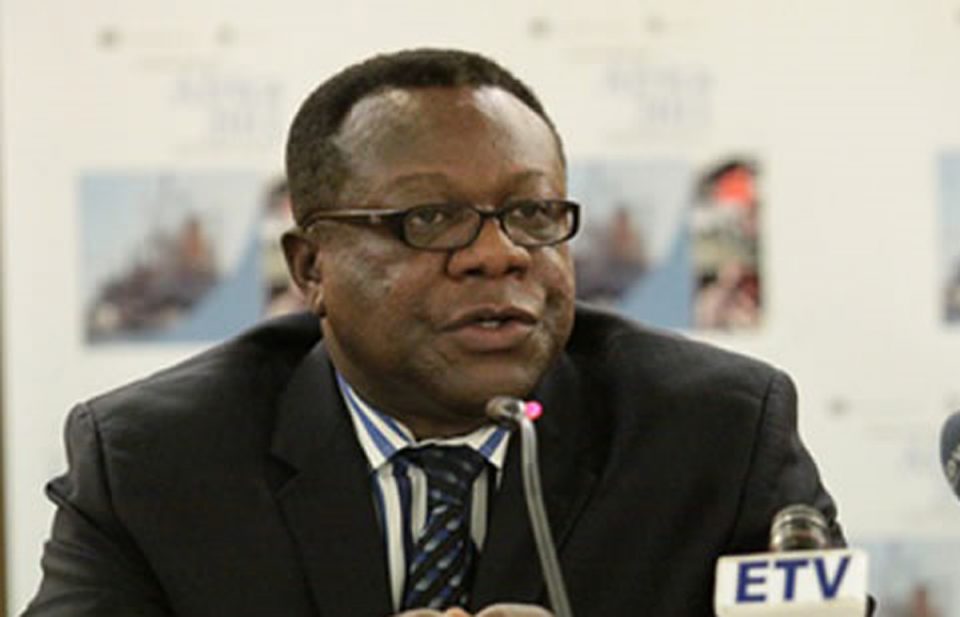Nigerians presently are spending about N1.5 trillion globally on education, an estimated N80 billion or $500 million is taken by the United Kingdom alone.
This was disclosed yesterday by Professor Emmanuel Nnadozie, the Executive Secretary, African Capacity Building Foundation, Harare, Zimbabwe, at The Bullion Lecture 2022 organised by Centre for Financial Journalism.
Speaking as a guest lecturer at the event with the theme: “Funding Tertiary Education in Nigeria: Challenges and Opportunities” he said Nigeria is the most sought after for education by most foreign countries.
“Imagine the fund going outside the country to have a proper education. If this is retained in the country by improving the standard of education, it will also boost our economy”.
In his opening remark, the special guest, Lagos State Governor, Babajide Olusola Sanwo-Olu who was represented by the Commissioner for Finance, Rabiu Olowo, said the challenge of inadequate funding is responsible for the no go purpose of our tertiary institutions.
He urged all stakeholders to proffer a lasting solution to the issue of funding tertiary institutions in the country. “We need to develop new innovative approach and take a cue from the model operated in developed countries, keeping in mind that the government cannot do it alone”, he said.
Stressing his points Nnadozie, borrowed part of the words written in front of the South Africa University, a nation can only be destroyed by lowering the level of education of its citizens. “The collapse of education is the collapse of a Nation”.
Outlining the challenges and opportunities that abound in the country, he said the human capital and need for development is very crucial for an effective and functional tertiary institution.
H said no economy has been able to develop in the world without skilled human resources to drive it. “Development is meant for the people but it takes people to bring about development,” he said.
Human capital, he said, is a collection of resources that is processed individually or collectively. These resources are the total capacity of a people that represent the fund of wealth which can be directed to accomplish the goals of a nation or state.
This, he said, consists of education, health, skills, abilities, and ideas that can increase productivity when they are increased. Human capital development, therefore, relates to any activity that leads to the improvement of individual capability.
He said, if as a country we need to grow in a sustainable pattern, enhance our competitiveness and wish to develop the country, we must invest in human capital.
The only way human capital can be developed is by investing in health, education, and a higher standard of living.
Explaining further, he said that there are four alternative models of financing tertiary education across countries. These include government, government and individuals shared responsibility, private individual or household and laissez-faire with no defined pattern.
Unfortunately, he said Nigeria belongs to the fourth model along with 11 other countries. He advised that Nigeria should reconsider and move to the second model where countries like Australia, Canada, the Netherlands, New Zealand, the United Kingdom, and the United States are.
Other possible innovations where the government must increase the budget allocation, cost-sharing and funding strategy for education, is keying and tapping into diaspora intellectual and capital, among others.
While the focus of the lecture is on funding, he concluded by calling attention to the mismanagement of funds allocated for the education sector in the past.
“Concurrent reforms efficiency, resource allocation, curriculum reform, change in pedagogical practices, strengthening of accountability and governance structures and autonomy are crucial for success in any innovative funding mechanism as it cannot be business as usual,” he said.
In her remarks, Prof. Ngozi Osarenren, Department of Educational Foundations, University of Lagos, said in as much as she agrees with Prof. Nnadozie on all, she disagrees with the cost sharing. She said government should give more priority to education. “I agree with all but one area, Government can’t do it alone but should do enough”, she said.
She added that government should improve facilities to make access more accessible for the students. Also the limited funds available shouldn’t be mismanaged and rather than give approval for more tertiary institutions whose lecturers’ certification are questionable, the old ones should be well taken care of to produce quality professionals.
The Bullion Lecture 2002, the 6th since inception is organized by Centre for Financial Journalism, a training and research organisation, was chaired by Prof. Peter Okebukola.




